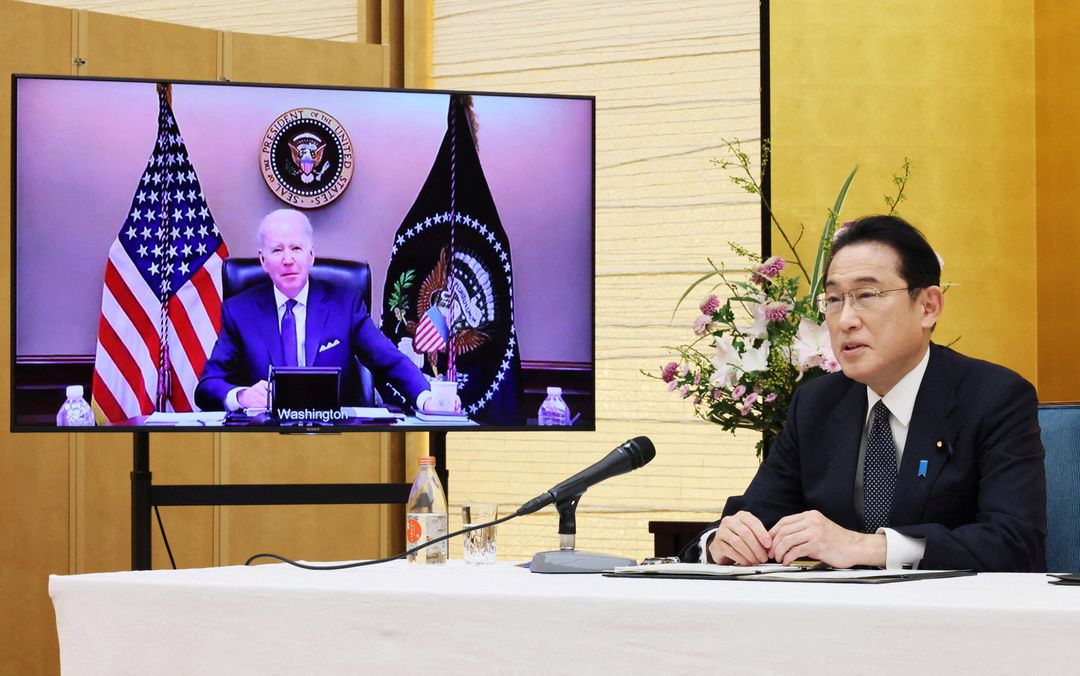Richard Javad Heydarian, Professorial Chairholder in Geopolitics, Polytechnic University of the Philippines
Feb 28, 2023
Japan seeks to further develop its partnerships with ASEAN countries and neighboring states to reassess its place globally amidst tensions between the U.S. and China.
Zhang Yun, Associate Professor at National Niigata University in Japan, Nonresident Senior Fellow at University of Hong Kong
Jan 19, 2023
A approach to regional security that’s heavily based on deterrence will only lead to more insecure outcomes. Military strength is an important component, but it should not be pursued to the virtual exclusion of diplomacy. Regional consensus is essential.
Zhang Yun, Associate Professor at National Niigata University in Japan, Nonresident Senior Fellow at University of Hong Kong
Sep 30, 2022
China and Japan have deepened their economic interdependence, but they have a long way to go in building political trust, especially in the security realm. The two countries should get beyond the old concept that starts with military deterrence. It is no longer productive.

Zhang Tuosheng, Principal Researcher at Grandview Institution, and Academic Committee Member of Center for International Security and Strategy at Tsinghua University
Sep 07, 2022
Generally speaking, the China-U.S.-Japan trilateral relationship is in a state of turbulence and serious imbalance. The Russia-Ukraine war and the latest Taiwan crisis have further eroded stability. Here is what’s needed now.
Zhang Yun, Associate Professor at National Niigata University in Japan, Nonresident Senior Fellow at University of Hong Kong
Aug 30, 2022
The two allies will feel the urge to escalate their positions on Taiwan as a way of testing each other’s loyalty. But intervention in the Taiwan Strait will leave the island in a state of strategic stagnation and will cause unnecessary regional turmoil.
Yasuo Fukuda, Former Prime Minister of Japan
Feb 22, 2022
The unfortunate Japanese experience in boosting domestic demand and setting trade policy can be drawn upon today. Hopefully, China will not repeat the mistakes of Japan. Frictions between China and the United States can be addressed if they are willing to meet each other halfway.
Lucio Blanco Pitlo III, President of Philippine Association for Chinese Studies, and Research Fellow at Asia-Pacific Pathways to Progress Foundation
Aug 24, 2021
Japan’s strong ties to the West have benefited its economy and global standing in the Pacific Rim for the better part of a century. Now, as China gains power and grows bolder, Japan’s next moves will test the stability of China-Japan relations.
Ted Galen Carpenter, Senior Fellow, Randolph Bourne Institute
May 13, 2021
Japan’s balancing act has gotten increasingly more challenging over the years. Tasked with trying to placate both China, its powerful neighbor, and the United States, its long-time ally and protector, Tokyo’s delicate balancing act is becoming ever more difficult to sustain.
Zhang Yun, Associate Professor at National Niigata University in Japan, Nonresident Senior Fellow at University of Hong Kong
May 08, 2021
The China-Japan relationship is like a ship forging ahead against the wind. But it’s also drifting in the current and will move backward if it fails to move ahead. Their ties in the new era need to be constantly enriched and exercised.
Liu Jiangyong, Vice Director, Tsinghua University
Apr 28, 2021
The United States and Japan are interfering in domestic affairs, and they have formed an ideological alliance in which they believe China must be confronted. The U.S. should reconsider this as it seeks allies among unrepentant Japanese politicians. After sowing the wind, what comes next is the whirlwind.